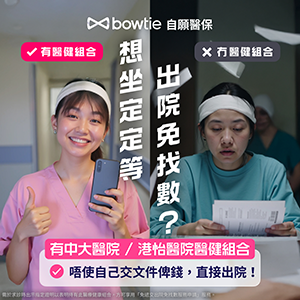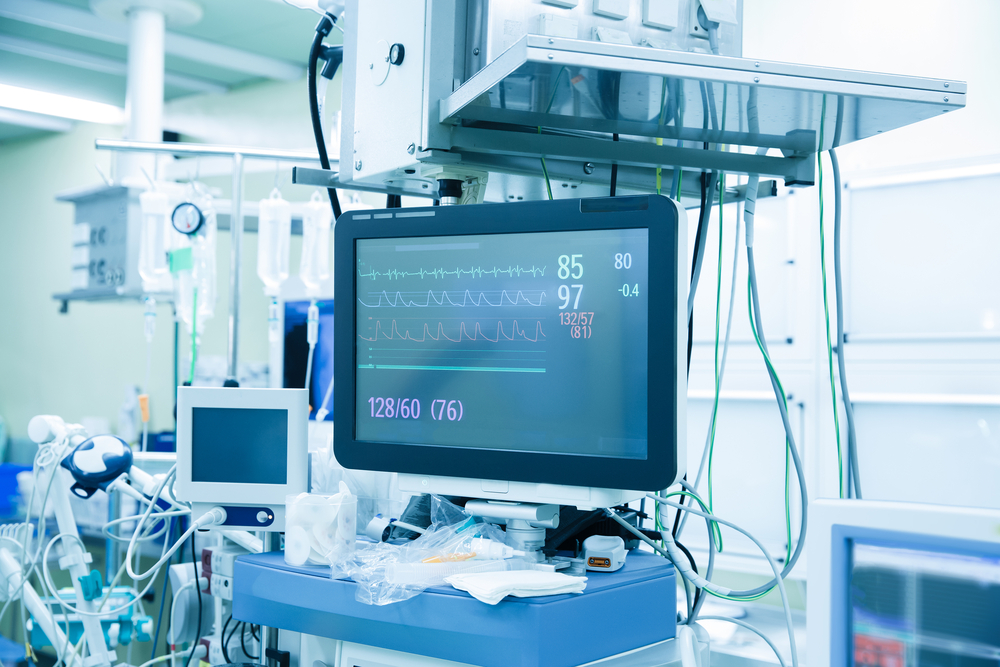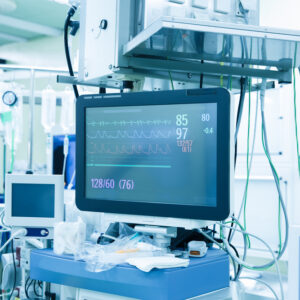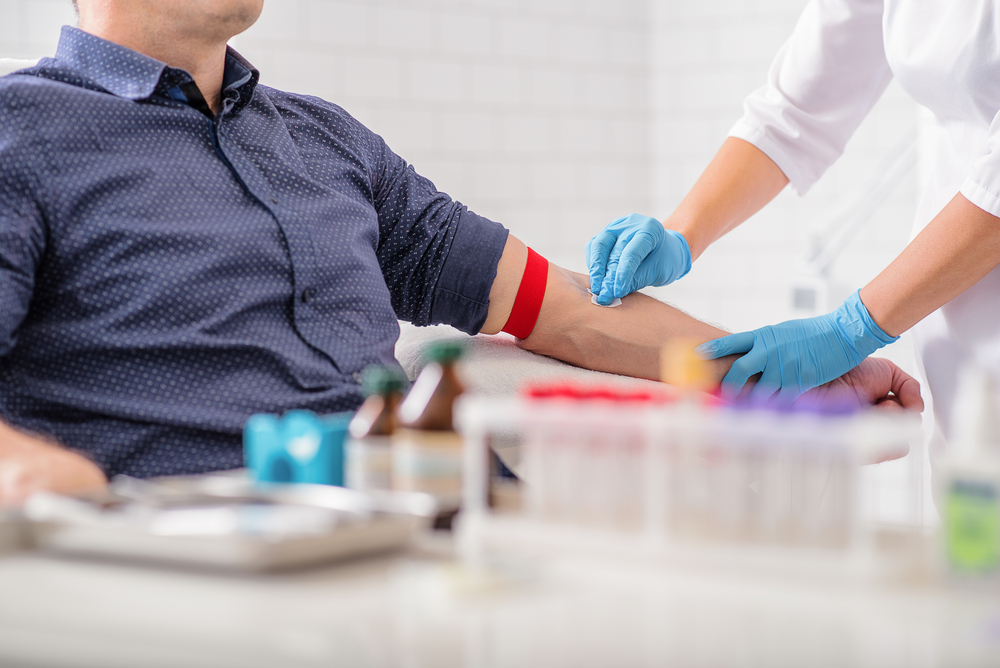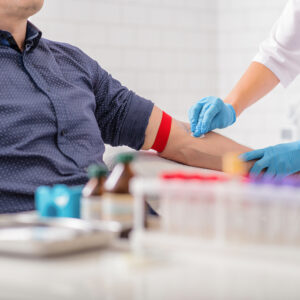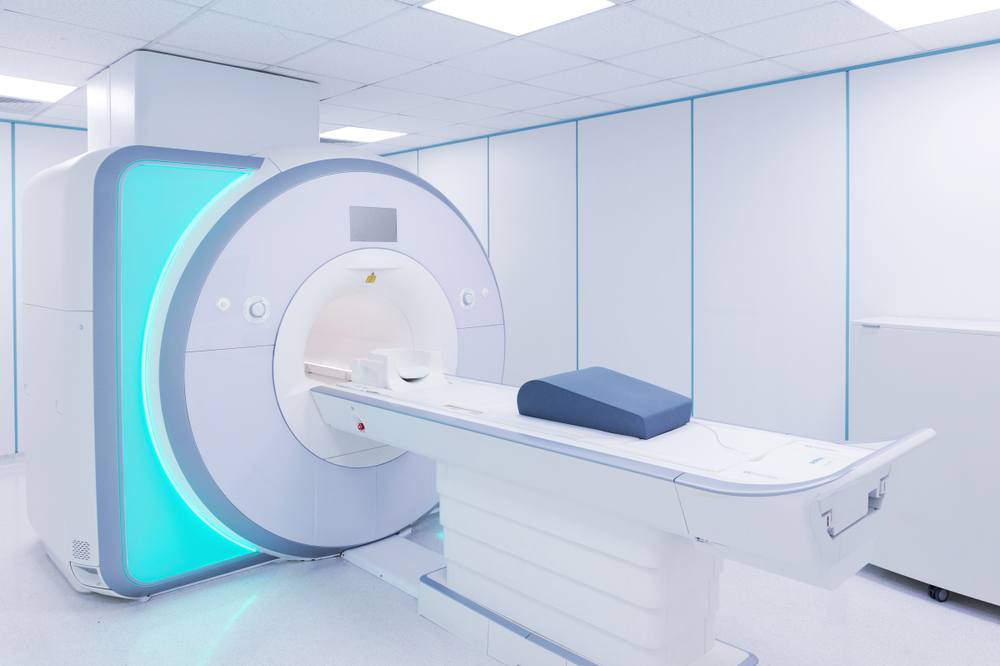When is a body check needed?
Regardless of the severity of symptoms, individuals should undergo an examination if they experience the following warning signs:
- Chronic stomach pain, loss of appetite, acid reflux
- Abdominal pain, bloating
- Diarrhea, constipation, changes in bowel habits
- Persistent and unexplained bruising of the skin
- Swelling in the lower limbs
- Weakness or paralysis in the limbs
- Unexplained discharge from the genital area
- Frequent urination, blood in urine, or painful urination
Who is at higher risk and needs to undergo an examination?
The medical community generally recommends regular body checks for the general public. In addition to that, individuals at higher risk or exhibiting warning signs should undergo examinations, including:
Family medical history
Individuals with a family history of inherited diseases such as cancer, hypertension, high cholesterol, diabetes, cardiovascular diseases, or stroke among their immediate relatives.
Age group
Since individuals of different age groups are susceptible to diseases, even young individuals should undergo relevant body checks early on to monitor their health. As the body condition tends to decline with age, it is recommended that individuals aged 50 and above undergo body checks at least once a year.
Obesity
Individuals with central obesity or overweight are at a higher risk of developing cardiovascular diseases, hypertension, hyperlipidemia, or stroke.
Postmenopausal women
Postmenopausal women, due to hormonal deficiencies, have a significantly increased risk of developing cardiovascular diseases.
Personal concerns
Individuals who have doubts or concerns about their health, whether in terms of physical or psychological well-being.
Self-examination for physical health
Apart from the health screening and body check programs offered by medical institutions or hospitals, individuals can also perform simple self-examinations at home. However, the accuracy of self-examinations is naturally lower than that of medical examinations conducted at hospitals. Therefore, it is recommended that individuals who have symptoms or doubts during self-examinations seek professional advice and undergo formal medical examinations.
There are various health questionnaires available on the market that provide individuals with a basic understanding of their physical condition and preliminary self-assessment. Additionally, through regular observations, tactile examination, and the use of basic home medical instruments, individuals can perform self-examinations:
- Regular measurement of blood pressure, body temperature, and heart rate
- Observation of skin condition, noting the presence of abnormal redness, bruises, bleeding moles, or lesions
- Observation and palpation of the lower limbs for the presence of swelling
- Breast examination: Carefully observe any changes in the shape and size of the breasts, such as skin indentation, ulceration, nipple retraction, or discharge. Use fingers to gently press and examine every part of the breasts and their surroundings to check for any lumps.
- Self-testicular examination: Examine the skin of the scrotum, noting any swelling. Using both hands, check each testicle by placing the thumb on top and the index and middle fingers beneath it, gently rolling the testicle between the thumb and other fingers to feel for any lumps.
Methods of Body Check and Common Diagnostic Items
Routine health screening and body checks are suitable for individuals without specific symptoms and generally cover common diseases such as hypertension, hyperlipidemia, diabetes, gout, cardiovascular diseases, and stroke. Common examination methods are simple and have a low risk, including measuring height and weight, inquiring about personal medical history and family medical history, blood tests, urine tests, electrocardiograms, gynecological examinations, fecal occult blood tests, and some cancer screenings. The following will provide detailed explanations of the principles, functions, and applicable individuals or situations for various common examination items:
Principle
Examines the cellular components of the blood, including red blood cells, white blood cells, and hemoglobin, to determine if they are within normal ranges.
Purpose
Reflects whether the body is experiencing anemia, infection, leukemia, lymphoma, or organ dysfunction.
Suitable For
Individuals with symptoms such as wheezing, fever, or swollen lymph nodes.
Principle
Evaluates the levels of electrolytes, creatinine, and urea released by the kidneys.
Purpose
Reflects whether the kidneys are functioning normally or if there is early-stage kidney failure. Sodium and potassium levels in the blood reflect whether there is an imbalance of electrolytes in the body.
Suitable For
Individuals with symptoms such as decreased urine output, muscle cramps, or coma.
Principle
Examines the levels of enzymes, proteins, and metabolites produced by the liver.
Purpose
Reflects whether the liver is damaged, hardened, or experiencing failure.
Suitable For
Individuals with a family history of liver cancer or carriers of hepatitis viruses.
Principle
Glycated hemoglobin (HbA1c) is formed when hemoglobin combines with glucose. The higher the concentration of glucose in the blood, the higher the concentration of glycated hemoglobin. HbA1c reflects the blood sugar index over a period of two to three months.
Purpose
Can determine the presence of diabetes or the risk of pre-diabetes through readings of random blood sugar, fasting blood sugar, or glycated hemoglobin (HbA1c).
Suitable For
Individuals with a family history of diabetes.
Principle
Cholesterol is a type of fat substance in the body, primarily produced by the liver or obtained from food. Cholesterol is insoluble in water and combines with proteins in the blood to form lipoproteins.
Purpose
Indicates whether there is hyperlipidemia and the risk of developing coronary heart disease and stroke through the levels of triglycerides, high-density lipoprotein, and low-density lipoprotein in the blood.
Suitable For
Elderly individuals, those with poor dietary habits, obesity, lack of exercise, excessive alcohol consumption, smoking, and a family history of high cholesterol.
Principle
Reflects the pressure on the heart during contraction and relaxation.
Purpose
Continuous monitoring of blood pressure and heartbeat can indicate the presence of conditions such as hypertension or arrhythmias.
Suitable For
Individuals with a family history of hypertension or heart disease.
Principle
Uses the ratio of height to weight as an indicator of overall nutritional status and obesity.
Purpose
Determines whether there is overweight or an increased risk of diseases such as diabetes, hypertension, coronary artery disease, stroke, and cancer.
Suitable For
Individuals who are overweight or centrally obese.
Principle
The heart muscle generates small electrical currents during its contraction. By attaching electrode patches to the body, the electrical activity of the heart is detected and recorded.
Purpose
To identify and rule out serious conditions such as arrhythmias and acute myocardial infarction.
Suitable For
Individuals experiencing chest pain, tightness in the chest, shortness of breath, and those with a family history of heart disease.
Principle
Through microscopic examination, chemical tests, and microbial tests, the urine is analyzed for proteins, red blood cells, bacteria, and other components.
Purpose
To detect urinary tract infections, kidney diseases, diabetes, and other conditions.
Suitable For
Individuals with fever, blood in urine, and a family history of diabetes.
Principle
Examination of stool quantity, color, consistency, odor, etc., through microscopic examination, chemical tests, and microbial tests.
Purpose
To detect conditions such as colorectal cancer, gastroenteritis, bacterial or viral infections, and other diseases.
Suitable For
Individuals with chronic diarrhea, blood in stool, and a family history of colorectal cancer.
Principle
Passing energy in the form of an electron beam through the chest to obtain images of organs and tissues.
Purpose
To serve as an indicator for excluding diseases such as tuberculosis, pneumothorax, and tumors.
Suitable For
Individuals with cough, asthma, and a family history of lung cancer.
Principle
Using high-frequency sound waves to visualize organs and blood flow in the body.
Purpose
Commonly used to examine organs such as the liver, gallbladder, pancreas, spleen, kidneys, thyroid, pelvic region, prostate, and to detect the presence of tumors.
Suitable For
Individuals with symptoms such as abdominal pain, back pain, and a family medical history.
Cost of Health Screening and Body Checks
The following table shows the fees for body checks in selected clinics or hospitals:
| Hospital/Clinic | Price | Package Highlights |
| Bowtie & JP Health
(Appointment via WhatsApp) |
Three High Basic Plan/
Small, Medium, Large Salad Health Check Packages HK$1,050 – $4,800 |
Package includes:
|
| Hong Kong Sanatorium & Hospital | Check-Up Plan Packages (Excellence/Prestige/Supreme)
HK$3,500 – HK$14,900 |
Package includes:
|
| Prince of Wales Hospital | Comprehensive Men’s Health Check-Up Plan
HK$2,500 – HK$5,310 |
Package includes:
|
| Comprehensive Women’s Health Check-Up Plan
HK$2,500 – HK$7,020 |
Package includes:
Note: The above mentioned prices are for reference only (as of February 1, 2023), and details can be obtained by contacting the hospitals or clinics directly. |
- *Please note that the above-mentioned price information is for reference only (updated as of February 1, 2023), and for detailed information, it is recommended to contact the hospitals or clinics directly.
FAQs about Health Screening and Body Checks
A general body check is suitable for individuals without specific symptoms. It generally includes low-risk tests such as measuring height and weight, inquiring about personal and family medical history, blood tests, urine analysis, electrocardiogram (ECG), fecal occult blood test, and some cancer screenings.
On the other hand, a women’s body check is specifically designed for women of different age groups and focuses on early detection of common gynecological conditions such as cervical cancer, breast cancer, and fibroids. The examination usually includes Papanicolaou (Pap) smear, bone density testing, pelvic ultrasound, breast ultrasound, tumor markers, and other relevant tests.
More is not always better when it comes to health checkup items. It is recommended to consult your family doctor before undergoing a health checkup, and choose the necessary items based on personal and family medical history, age, symptoms, and other factors. Some of the checks, such as gastroscopy, are invasive procedures and carry certain risks such as infection or bleeding. Therefore, blindly selecting a health checkup package that includes the most items not only carries potential risks or complications, but also may affect the accuracy of the results of the checkup.
- 1WebMD
- 2Polyu
- 3The Family Planning Association of Hong Kong
- 4The Family Planning Association of Hong Kong
- 5Mayo Clinic
- 6NHS

